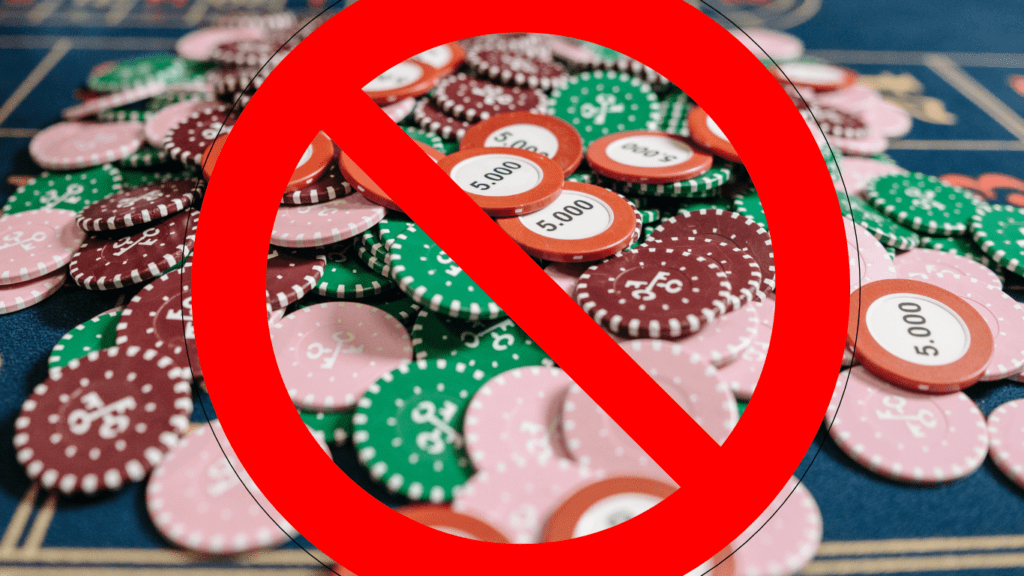Overview of the Annual Defense Bill
The annual defense bill encompasses a broad range of proposals and changes that impact the military. Among these is the proposal to ban casinos within military bases, expected to be a key discussion point.
Key Proposals and Changes
The defense bill includes several key proposals. The casino ban aims to reduce gambling-related issues among service members.
Another significant proposal involves budget allocations for modernizing equipment.
There’s also a focus on improving such as:
- healthcare services
- addressing mental health
- enhancing cybersecurity measures
These changes target various aspects of military life, aiming to bolster efficiency and well-being.
Significance of the Defense Bill
The defense bill plays a crucial role in shaping military policies. It determines budget allocations, directs strategic priorities, and implements new policies.
The proposed casino ban, for instance, reflects an attempt to address social issues within the ranks.
Debate around these proposals highlights the bill’s impact on service members’ daily lives and overall military readiness.
The defense bill, through its provisions, influences both immediate and long-term military strategies.
Exploring the Military Casino Ban

The annual defense bill proposes a ban on casinos within military bases. This section delves into the reasons behind the proposed ban and its potential impact on military personnel.
Reasons Behind The Proposed Ban
Several factors drive the proposed military casino ban. Among the reasons, concerns about gambling addiction stand out.
- Studies find that military personnel face a higher risk of developing gambling problems compared to civilians.
- Gambling issues can lead to financial troubles and mental health issues, which compromise service members’ readiness.
- Commanders believe that banning casinos helps mitigate these risks.
Potential Impact on Military Personnel
The ban’s potential effects on military personnel are significant. Without access to on-base casinos, service members may have fewer gambling-related distractions and financial issues.
This could improve their overall mental health and financial stability.
However, some argue that banning casinos may drive service members to off-base gambling establishments, where they lack the same level of support and monitoring.
The proposal, therefore, seeks to balance reducing gambling risks with considering unintended consequences.
Reactions to the Military Casino Ban Proposal
Reactions to the military casino ban proposal have been varied. Different stakeholders, from military communities to defense policy experts, hold divergent views.
Feedback from Military Communities
Many military personnel express support for the proposed ban, citing gambling addiction risks.
Some service members share stories of colleagues struggling with financial instability due to on-base casinos.
Military families also praise the initiative, believing it promotes better mental health and financial stability.
However, not all feedback is positive. Some argue the ban could drive gambling off-base, where oversight and support are minimal.
There’s concern that without proper alternatives, this might only shift the problem rather than solve it.
Opinions of Defense Policy Experts
Defense policy experts have provided mixed assessments of the ban. Proponents highlight studies indicating higher gambling addiction rates among military personnel.
They argue that the ban will mitigate risky behaviors that undermine readiness and mental health.
Conversely, critics question the effectiveness of a ban. They suggest comprehensive support programs as a more viable solution.
Some experts emphasize addressing root causes such as stress and isolation rather than imposing blanket prohibitions.
Reactions reflect complex perspectives, underscoring the challenge of balancing risk reduction with unintended consequences in crafting military policy.
Comparison With Other Legislations
Understanding how other countries handle military regulations on gambling can provide helpful insights for shaping policies.
Military Regulations in Other Countries
Several countries address gambling within their military differently.
The United Kingdom, for example, strictly prohibits gambling within military installations but provides support services for personnel struggling with gambling addiction.
In contrast, Australia allows limited gambling on bases, focusing more on education and support to mitigate risks.
Similar to the proposed US ban, Canada enforces a restriction on gambling to reduce financial and mental health issues among service members.
Previous Defense Bill Amendments
Past amendments to defense bills have often focused on enhancing the well-being of military personnel.
The 2011 National Defense Authorization Act (NDAA) included measures to improve mental health services on bases.
In 2017, the NDAA introduced financial education programs to address personal debt among soldiers.
These amendments share a common goal with the proposed casino ban: to protect service members from financial and psychological harm.

 Nathansorex Knight is the visionary Founder and Chief Editor of Spin Win Safely, a premier platform dedicated to enhancing the online gambling experience through comprehensive guides, in-depth reviews, and insightful articles. With years of expertise in the industry, Nathansorex is committed to promoting responsible gaming and ensuring that players have access to accurate and up-to-date information.
Under his leadership, Spin Win Safely has become a trusted resource for both novice and experienced gamblers. Nathansorex's meticulous attention to detail and passion for the industry are reflected in the platform's high-quality content, which covers everything from casino reviews and game strategies to the latest industry trends and news.
Nathansorex's dedication to player safety and education is evident in his efforts to provide resources that help users make informed decisions. His authoritative voice and extensive knowledge make him a respected figure in the gambling community, guiding players towards a safer and more enjoyable gambling experience. Through Spin Win Safely, Nathansorex continues to set high standards for excellence and integrity in online gambling journalism.
Nathansorex Knight is the visionary Founder and Chief Editor of Spin Win Safely, a premier platform dedicated to enhancing the online gambling experience through comprehensive guides, in-depth reviews, and insightful articles. With years of expertise in the industry, Nathansorex is committed to promoting responsible gaming and ensuring that players have access to accurate and up-to-date information.
Under his leadership, Spin Win Safely has become a trusted resource for both novice and experienced gamblers. Nathansorex's meticulous attention to detail and passion for the industry are reflected in the platform's high-quality content, which covers everything from casino reviews and game strategies to the latest industry trends and news.
Nathansorex's dedication to player safety and education is evident in his efforts to provide resources that help users make informed decisions. His authoritative voice and extensive knowledge make him a respected figure in the gambling community, guiding players towards a safer and more enjoyable gambling experience. Through Spin Win Safely, Nathansorex continues to set high standards for excellence and integrity in online gambling journalism.
